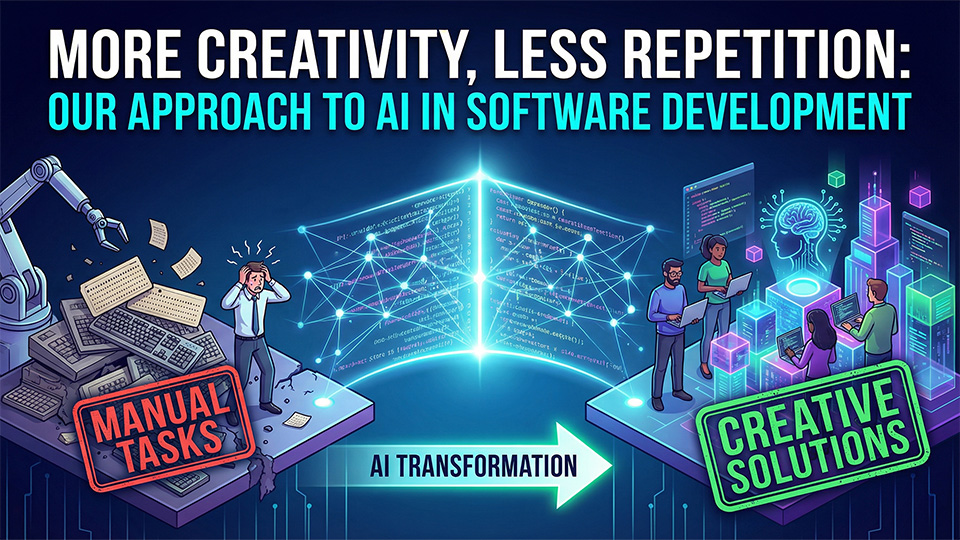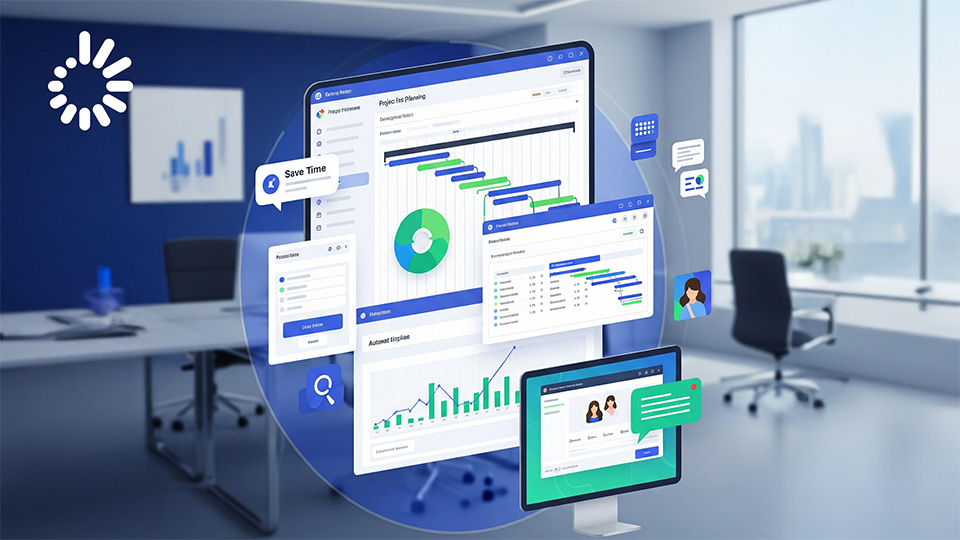September 6, 2022
How DevOps Helps Your Digital Transformation
Introduction
The turbulent changes sweeping the tech industry are forcing many firms and companies to reinvent the way they work continuously. Each one fights to deliver the best service quickly and confidently to stay ahead of others. Many companies choose to follow the DevOps model because of the benefits that come with it, which allows them to serve more clients, work on more projects, and complete them with better speed and efficiency. So what is this cure for the fast-changing industry, and how can it benefit your digital transformation?
What is the DevOps model? Definition.
DevOps, standing for development and operations, means precisely what the name implies and everything in between. It combines cultural mindset, practices, and tools, integrating every part of the process from software development, QA, reviewing, testing, deployment and maintenance, and more to make it more flexible, dynamic, and effective.
Goals and adopting the DevOps model
It might be good to look through what goals they achieve and dive deeper into what following this model means to get on board with adopting the DevOps model.

Source: Mindbowser.com
Cultural, operational, and practical goals of DevOps: The primary purpose of DevOps is not to be a temporary treatment that fixes the symptoms but rather a cure that rewrites how the whole firm operates. DevOps changes the mindset and philosophy of how your business works to achieve higher efficiency on a larger scale. It is similar to agile methodologies but applies on an organizational level. Since DevOps provides mobility and flexibility, you can better satisfy your customers by implementing changes effectively and on time.
DevOps cultural philosophy: DevOps removes the barriers between the two traditionally separate teams - development and operations. The projects, while separated to be completed in phases, are somewhat intertwined as a whole to assure consistency and satisfaction. With DevOps, teams will strive to communicate more frequently to improve the quality of services they provide to customers. Regardless of their structure, organizations that use this model have groups that view the development and infrastructure lifecycle as part of their responsibilities.
DevOps practices: If you're hooked on having your business follow the DevOps model, you might want to know which practices contribute to the success of this model. One key practice to follow closely is to perform frequent but small updates. Traditionally, updates are given at specific times when promised. However, frequent small updates make deployment less risky. Organizations can also utilize microservices architecture to make their applications more flexible and innovative. Other best practices include continuous integration, delivery, code infrastructure, and monitoring and logging.

Benefits of DevOps
Now that we've gone over the goals and the life cycle of DevOps let's take a look at the benefits that make it so favorable.
Dynamic interaction cycle: Due to the significant streamlining and reorganization of the workflow following this model, your business will operate more dynamically and efficiently. That will make the iteration shorter and much more responsive while preventing risks simultaneously.
Improves scalability: With cloud computing becoming more important in any software development project, scalability has become a problem to be controlled and tackled. Implementing DevOps best practices can assure that it isn't an issue. On the contrary, it will improve technical scalability by creating a better environment.
Super problem solving: One of the most advertised benefits is the conspicuous communication practice team members must follow. It will keep everyone in check and improve problem-solving abilities through heavy collaboration in the team.
Process automation: The development is riddled with repetitive tasks that can be completed, which demotivates developers and takes up precious time that can be used on other parts of the process. DevOps fixes this with automation which decreases manual effort into the routines.
Code synchronicity: Keeping track of every change and documenting is a complex and tedious task that gets developers to groan and complain whenever they need to report it. If it doesn't get done, there will be a lot of backtracking and adjusting the code, which ultimately requires more time. With DevOps' transparent and highly organized code structure, tech documentation is more solidified, which speeds up the process and lets developers relax knowing their code is good.
Examples
When these famous companies adopted DevOps into their organization, their business started seeing immediate changes that scaled them to where they are today. While this model is more suitable for teams than companies, that didn't stop these companies from making the most out of it.
Amazon: The world's largest retailer is not only on board, it also offers DevOps tools. Amazon has invested heavily into adopting the DevOps mindset because the company understands how beneficial it is for quality assurance, risk management, and accelerated speed. It shows precisely how a company can thrive in the DevOps environment, and there are many good reasons why this is the case.
Netflix: This leading streaming platform in the industry is also establishing the DevOps mindset in their company. Because Netflix operates on a cloud-based infrastructure of hundreds of microservices, it's no surprise the company adopted DevOps practices. It even won a prize for successfully incorporating DevOps into its architecture.
Facebook: The popular social media platform grows based on DevOps practices. Because the company has too many customers that it needs to tend to, DevOps allows it to fix bugs, make changes that impact users and software launches efficiently, and deploy infrastructure quickly.
Conclusion
In essence, DevOps is a cross-functional approach to the process that connects employees and boosts productivity. Choosing to implement it will give you a beneficial effect on your operations. With DevOps engineers, you can solve more technical problems and react faster to the quick changes in this market. Looking through the benefits detailed above, you can be sure that your digital transformation will guarantee satisfied employees, faster deployment, and happier customers.
Contact Dirox now to learn more about our DevOps services!






























.svg)













